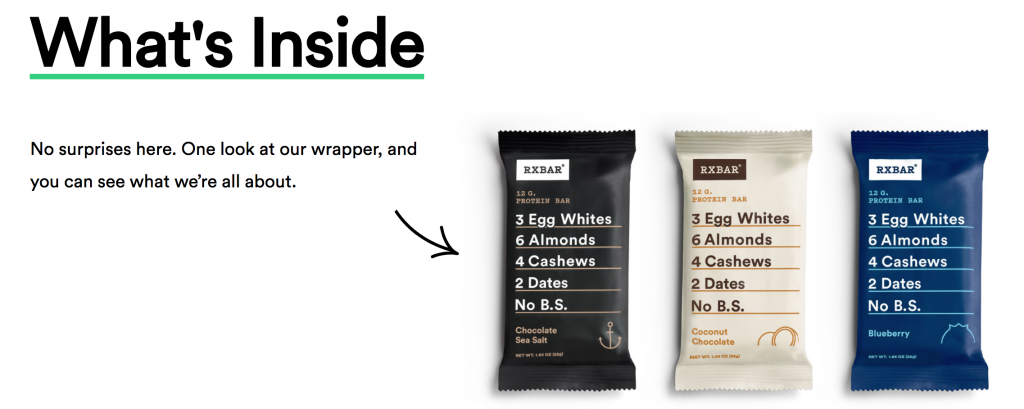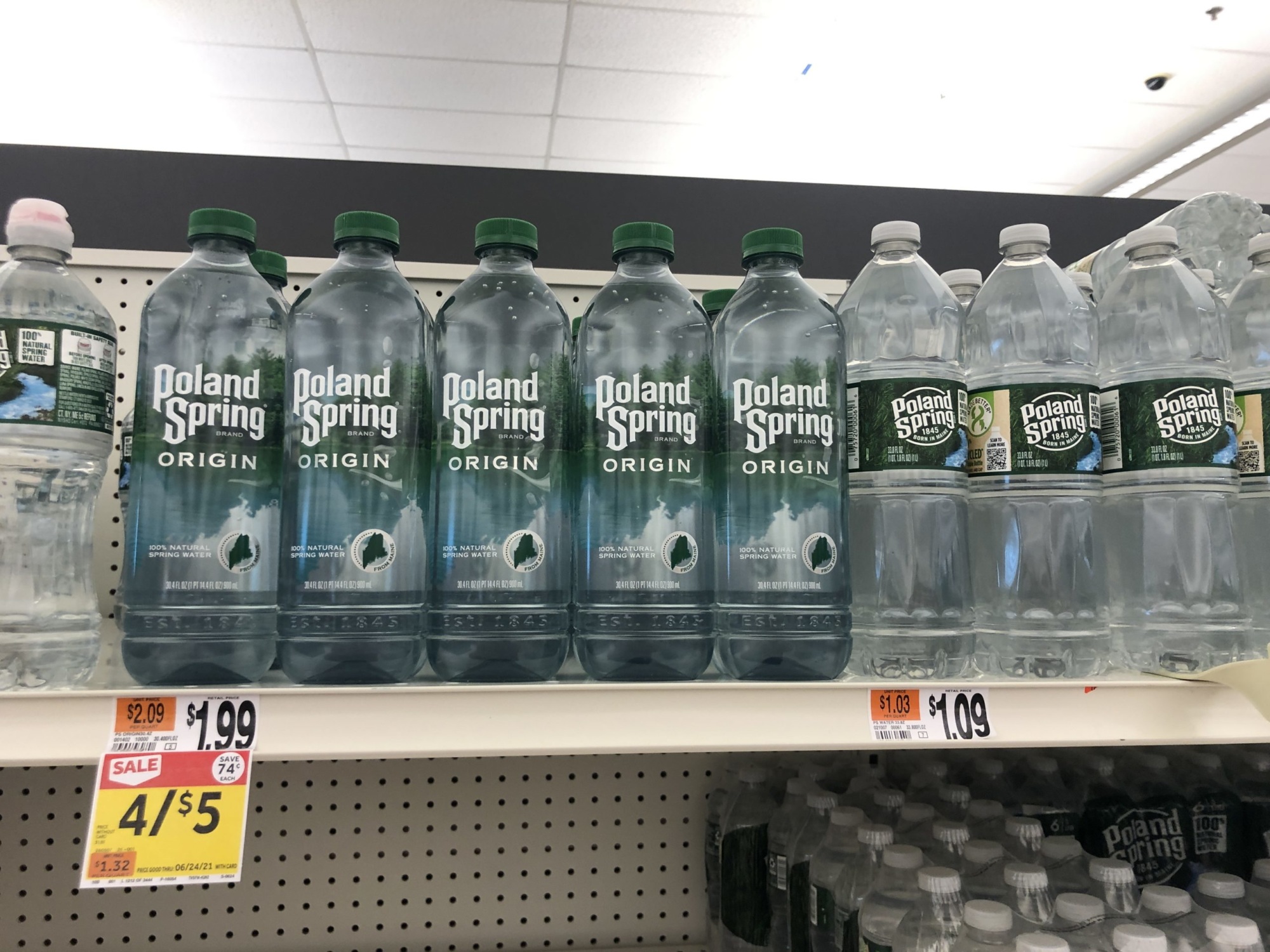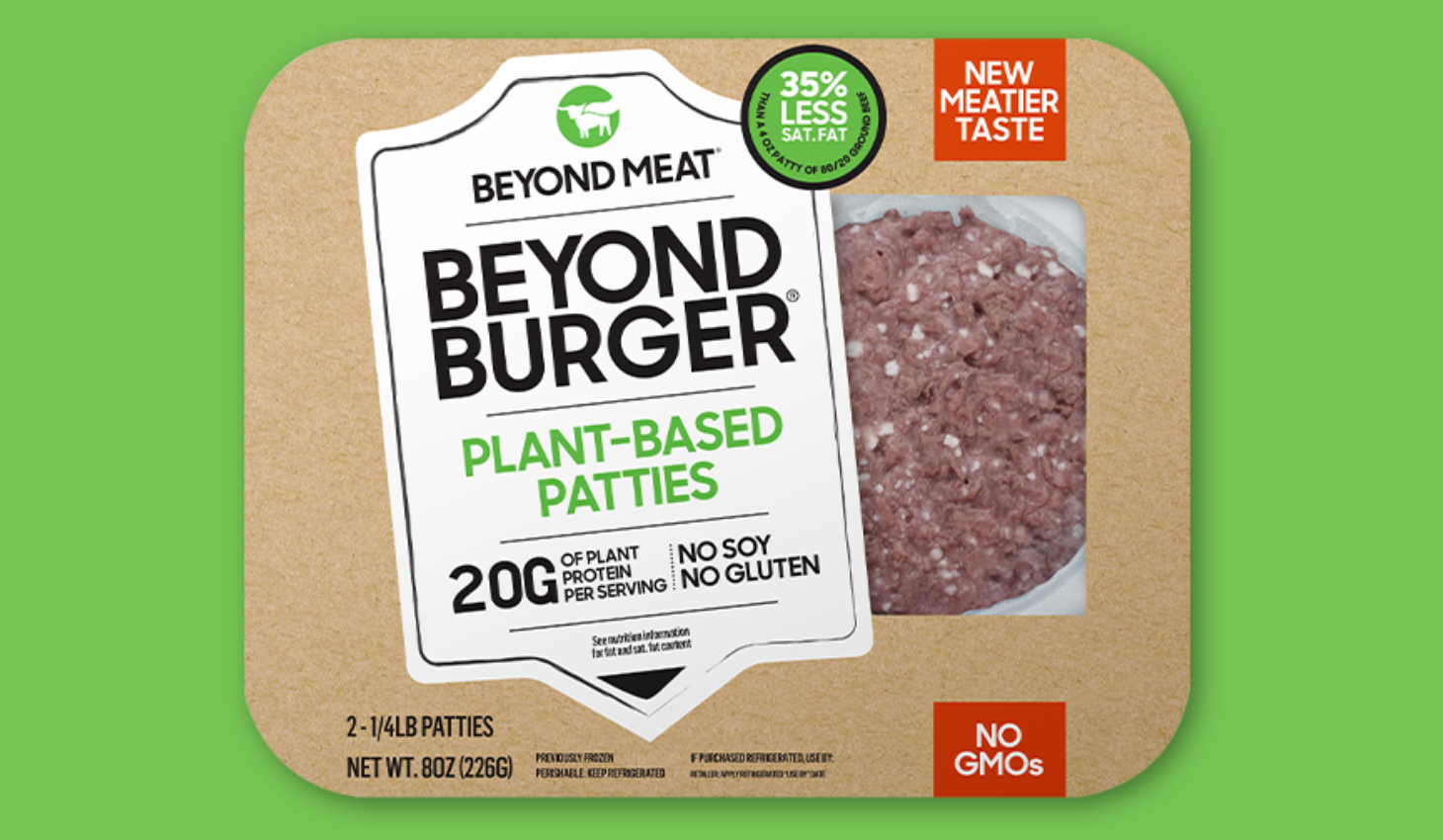
Alkaline Water Plus
Are there really any benefits to drinking alkaline water?
UPDATE 6/22/18: A class-action lawsuit is taking aim at the ingredients in RXBar as represented on the front of packaging and on the company’s website, alleging that the protein bars do not contain full egg whites or “real fruit.” Our original ad alert follows.
Before the launch of a “clean label” in 2015 that would move some, but not all, ingredients from the Nutrition Facts label on the back of packaging to the marketing side on the front, RXBar co-founder Peter Rahal says it was tough getting people interested in his Chicago-based company’s protein bars.
“Before the redesign, we did the trade show circuits and no one gave us any love,” Rahal said in an interview with Entrepreneur magazine posted on its website last month.
But that all changed after the clean-label redesign. After RXBar slapped an oversized list of a select few ingredients on the front of the wrapper, along with the phrase “No B.S.” (an apparent nod to the whole food movement), the company had its pick of a number of suitors. Wegmans was the first supermarket chain to stock its shelves with the protein bars. Whole Foods and Publix followed. Then Trader Joe’s signed on. Then the most lucrative deal of all: With net sales forecast to reach $120 million by the end of 2017, Kellogg bought RXBar for $600 million last fall.
By all accounts, a remarkably successful redesign — but did it come at the expense of some health-conscious consumers who continue to be misled about the “real” ingredients in the company’s protein bars?
Because, as we alluded to at the outset, despite representations that suggest the clean labels are inclusive of all that’s “inside” (see screenshot below and commercial above), not all of the protein bars’ ingredients are listed on the front of the wrapper. And one ingredient that is present in all 14 of the company’s bars yet absent from the list of three or four advertised on the front of packaging brings RXBar’s “whole food” claims into question. The secret sauce? Natural flavor.

It may be natural flavor’s seemingly less healthy cousin, artificial flavor, that takes most of the heat but the reality is the two substances aren’t all that different. Natural flavors are derived from natural sources, namely plants or animals, whereas artificial flavors are synthesized in a lab. But besides that, both serve the same purpose, i.e., to make food taste better and keep you coming back for more; both can comprise more than 100 chemicals, some of which may be synthetic; and both are additives, well, at least according to the FDA, which lists “Natural Flavoring Substances” on its menu of additives.
RXBar had a different interpretation. In response to a TINA.org request for comment on how a food containing additives could be marketed as a whole food, an RXBar spokeswoman, while acknowledging the presence of natural flavors in the company’s protein bars, claimed that “our products do not contain additives, fillers or preservatives.”
We also asked about the commercial, which claims, “At RXBar, we tell you what’s on the inside, on the outside,” and “What you see is what you eat,” and how those statements could be interpreted to mean that all the ingredients are included on the front of packaging, which features prominently in the ad. We noted that while a written disclaimer at the end of the commercial advises, “Check RXBAR packaging for complete ingredients,” it is easy to miss. (In addition to natural flavors, sea salt is a popular ingredient that is also not listed on the front of any bars.) Again, RXBar had a different way of looking at it.
“We do not claim that the front of the packaging represents all ingredients in the product,” the spokeswoman said. “Additionally, all ingredients, including natural flavors, are pictured in this advertisement.”
Pictured, maybe, but not named:
According to the Environmental Working Group (EWG), a nonprofit that examines ingredients in food, “natural flavor” is the fourth most common ingredient listed on labels. But it is also one of the least understood. To help illustrate this point, David Andrews, senior scientist at EWG, offers this example:
[W]hat is “natural flavor” exactly? Are natural flavors really better than artificial flavors? The simple fact that McDonald’s says its “natural beef flavor” is derived from wheat and milk should make you wonder.
Find more of our coverage on natural flavors here.
Our Ad Alerts are not just about false and deceptive marketing issues, but may also be about ads that, although not necessarily deceptive, should be viewed with caution. Ad Alerts can also be about single issues and may not include a comprehensive list of all marketing issues relating to the brand discussed.
Are there really any benefits to drinking alkaline water?
Poland Spring charges consumers a premium for its ORIGIN water. What are they getting in return?
TINA.org investigates ingredients in company’s flagship product, the Beyond Burger.

